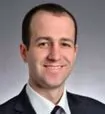This article was originally published in the Anderson Kill Policyholder Advisor Volume 22, Issue 4 (September/October 2013)
Is the right to independent defense counsel absolute? In mundane cases in which defense counsel is provided by an insurance company to defend the policyholder, such as minor auto liability and homeowner liability cases, the attorney is often appointed with little input from the policyholder client. In such cases there often are no reservations of rights to deny coverage, no above-policy-limits exposure to liability and no difference of view regarding strategy and tactics to defend or resolve the matter. Such run-of-the-mill claims often do not give rise to a dispute regarding independent counsel because in such a context both the insurance company and policyholder often have virtually identical interests related to the defense of the matter.
In more complex claims, however, especially those holding the potential for conflicts or for a dispute with the insurance company, a policyholder may properly have concerns about conflicts facing the defense counsel. In such cases, the right to independent counsel is often activated in many states, including New York. This right to independent defense counsel selected by the policyholder is central to effective protection of the policyholder's rights.
The clear right to independent counsel is founded on codified rules of ethics as well as on longstanding common law principles. A fundamental premise is that defense counsel, hired by and paid for by a liability insurance company to defend a policyholder, owes their total fidelity and allegiance to the policyholder client, not to the insurance company. Further, the common law rule has echoes in Rules 1.8 and 5.4 of the Rules of Professional Conduct, promulgated in New York as joint rules of the Appellate Divisions of the Supreme Court, effective April 1, 2009, requiring that lawyers maintain independent professional judgment and protect confidential information with regard to defense of their clients whether the defense is paid for by an insurance company or not. The common law right to independent counsel may entitle the policyholder to select its own independent defense counsel, with fees paid by the insurance company.
Recently, a New York trial parsed the right to independent counsel in the midst of a complex web of suits and claims (and conflicts) among various parties involved in a fatal crane collapse and those parties' insurance companies in East 51st St. Dev. Co. LLC v. Illinois Union Ins. Co., No. 154101/2013 (N.Y. Sup. Ct. Sept. 11, 2013). The developer, East 51st, whose property was the site of the accident, faced multiple injury and property damage lawsuits. East 51st's primary insurance company, Illinois Union, assumed the defense and sued the insurance companies for the construction manager and superstructure contractor, asserting that those other insurance companies should defend and indemnify East 51st for liability arising from the multiple injury and property damage lawsuits.
East 51st commenced its own separate affirmative litigation against the construction manager, superstructure contractor and certain subcontractors.
As the simultaneous actions progressed, East 51st encountered multiple conflicts of interest with Illinois Union and defense counsel, including settlement without East 51st's knowledge or consent, as well as advising parties on both sides of the dispute.
East 51st sought independent counsel in both the defense of the multiple injury and property damage lawsuits and the separate affirmative litigation East 51st itself had commenced.
The East 51st trial court observed that Illinois Union's assertion "that no divergence of interests exists . . . is insufficient to show that their interests are 'squarely aligned' " (slip op. at 15.), and that East 51st "sufficiently stated a claim that it is entitled to independent counsel . . . with reasonable attorneys' fees to be paid by Illinois Union."
With regard to the separate affirmative litigation commenced by East 51st, the trial court noted that the policies "fail to demonstrate any obligation on behalf of Illinois Union to prosecute or fund the prosecution of affirmative claims . . . " slip op. at 11.
The trial court in East 51st determined that the policyholder had stated a sufficient claim for independent counsel in the defense of claims against it but on this complex web of facts, dismissed the assertion of a right to independent defense counsel to pay for it to pursue affirmative claims. The law nationally on the policyholder's right to independent counsel continues to develop. Increasingly, overtly demonstrated conflicts of interest have required courts to protect this right. The old saying that the best defense is a good offense may require an asterisk.
William G. Passannante is co-chair of Anderson Kill's Insurance Recovery Group and a shareholder in the firm's New York office. A leading lawyer for policyholders in the area of insurance coverage, Mr. Passannante has appeared in cases throughout the country and has represented policyholders in litigation and trial in major precedent-setting cases.
Nicholas R. Maxwell is an attorney in the firm's New York office. Mr. Maxwell's practice concentrates in insurance recovery, exclusively on behalf of policyholders, and in environmental and employment law.
About Anderson Kill
Anderson Kill practices law in the areas of Insurance Recovery, Commercial Litigation, Environmental Law, Estate, Trusts and Tax Services, Corporate and Securities, Antitrust, Bankruptcy, Real Estate and Construction, Public Law, Government Affairs, Anti-Counterfeiting, Employment and Labor Law, Captives, Intellectual Property, Corporate Tax and Health Reform. Recognized nationwide by Chambers USA for Client Service and Commercial Awareness, and best-known for its work in insurance recovery, the firm represents policyholders only in insurance coverage disputes – with no ties to insurance companies and has no conflicts of interest. Clients include Fortune 1000 companies, small and medium-sized businesses, governmental entities, and nonprofits as well as personal estates. Based in New York City, the firm also has offices in Ventura, CA, Stamford, CT, Washington, DC, Newark, NJ and Philadelphia, PA.
The content of this article is intended to provide a general guide to the subject matter. Specialist advice should be sought about your specific circumstances.

